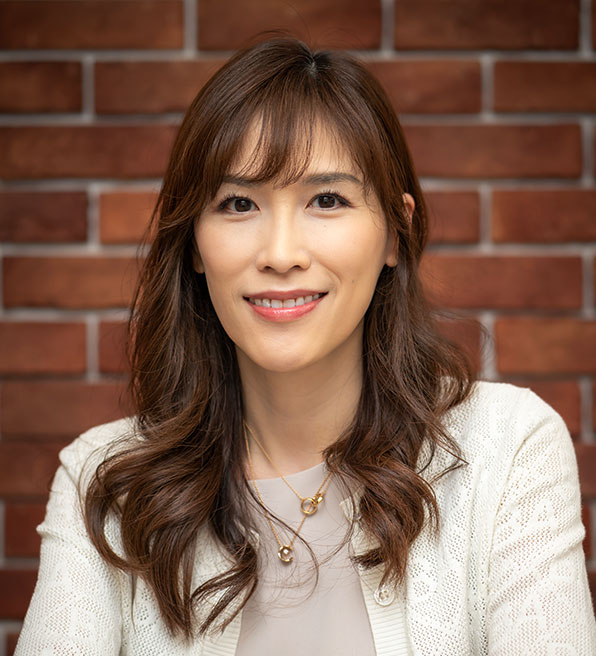Understanding Anxiety
Table of Contents
What is Anxiety?
Anxiety is a natural emotional response that everyone experiences at some point in their lives. It can manifest as feelings of worry, fear, or apprehension, often triggered by stressful situations. While occasional anxiety can be beneficial—helping us stay alert and focused—persistent or excessive anxiety can interfere with daily life and overall well-being. When anxiety becomes overwhelming, it may indicate the presence of an anxiety disorder, which encompasses a range of conditions characterised by intense and prolonged feelings of anxiety.
What Causes Anxiety?
Anxiety is a common response that can arise from many different places such as past experiences, current stress, big life changes or how your body and brain respond to certain situations.
Some people feel anxious during transitions like starting a new job, becoming a parent or facing uncertainty. Others may carry worry from earlier experiences or simply have a more sensitive nervous system.
What Are the Different Types of Anxiety?
There are several types of anxiety disorders, each with its own specific symptoms and triggers. Common types include:
- Generalised Anxiety Disorder (GAD): Characterized by worry that feels difficult to control. The worry may be about various aspects of life, including work, health, and social interactions.
- Panic Attacks or Panic Disorder: Involves recurrent panic attacks—sudden episodes of intense fear accompanied by physical symptoms like heart palpitations, shortness of breath, and dizziness. Please see our section on Panic Attacks
- Social Anxiety Disorder: Marked by an intense fear of social situations and being judged or embarrassed in public, leading to avoidance of social interactions.
- Specific Phobias: Involves an irrational fear of a specific object or situation, such as heights, spiders, or flying, which can lead to avoidance behaviours.
- Obsessive-Compulsive Disorder (OCD): Characterised by intrusive thoughts (obsessions) and repetitive behaviours (compulsions) performed to reduce anxiety.
What Are the Symptoms Associated with Anxiety?
Symptoms of anxiety can vary widely among individuals but generally fall into emotional, cognitive, and physical categories:
Emotional Symptoms:
- Persistent feelings of worry or fear
- A sense of impending doom or danger
- Irritability and restlessness
Cognitive Symptoms:
- Difficulty concentrating or focusing
- Racing thoughts or a constant feeling of being on edge
- Excessive worrying about everyday issues or future events
Physical Symptoms:
- Increased heart rate or palpitations
- Shortness of breath or hyperventilation
- Dizziness, sweating, or trembling
- Muscle tension or aches
- Sleep disturbances, including insomnia
These symptoms can significantly impact daily life, making it challenging to engage in work, social activities, or personal relationships.
Central Mind’s Approaches To Anxiety
Treatment for anxiety typically involves a combination of approaches tailored to the individual’s needs. Common treatment options include:
Cognitive Behavioural Therapy (CBT) is a widely used approach that helps individuals identify and change negative thought patterns and behaviours associated with anxiety.
Exposure Therapy Exposure therapy, a type of cognitive-behavioural therapy (CBT), is designed to help individuals manage and diminish their fear and anxiety reactions. During this therapeutic process, a person is systematically introduced to a situation or object that they fear, allowing them to gradually become less reactive and more comfortable over time.
Acceptance Commitment Therapy (ACT) uses strategies of acceptance and mindfulness (living in the moment and experiencing things without judgment), along with commitment and behaviour change, to cope with unwanted thoughts, feelings, and sensations.
Psychodynamic Therapy focuses on exploring early relationship experiences along with past experiences to further understand the meaning of anxious behaviours in the present.
Interpersonal Therapy (IPT) is used if your anxiety relates primarily to your relationships with other people. IPT helps people learn better ways to communicate with others, manage and resolve conflicts, and build healthier relationships.
How Do You Know If You’re Ready for Support for Your Anxiety?
You don’t have to wait for things to feel overwhelming before reaching out for help. If you’ve been feeling a bit off, a little overwhelmed, or just not quite yourself, support is here when you’re ready.
You might benefit from anxiety therapy if:
Your mind feels busy, even when things are quiet
If worry or overthinking has become a constant background noise, therapy offers a space to slow down, breathe, and gently understand what’s underneath.
You want to feel more grounded
Anxiety can make the world feel fast, unpredictable or overwhelming. Support helps you build tools to feel steadier and more present, one step at a time.
You’re going through a life change
Even positive changes like new jobs, relationships or becoming a parent can bring up anxiety. Talking it through with someone can help you navigate the unknown with more ease and self-compassion.
You’re tired of facing it alone
You’ve probably been strong for a long time. Therapy is a place where you don’t have to hold it all by yourself, where your experiences are met with care, not judgment.
You’re ready to take care of yourself.
Seeking support isn’t about fixing something. It’s about honouring your needs and giving yourself the space to feel better and more connected to who you are.
Meet our therapists specialising in working with Anxiety in Hong Kong

Michael Beckham
Clinical Counsellor
Michael Beckham is a US-trained and licensed Psychotherapist with 19 years of experience helping clients navigate life’s challenges with compassion, expertise, and care. He assists his clients in understanding how they see themselves, how they see the world, and how they see their place in the world.
Dr. Edward C. K. Lam
Clinical Psychologist
Edward is a U.S.-trained and licensed Clinical Psychologist in the state of Massachusetts, now bringing his expertise to Hong Kong. With extensive experience across various settings, Edward has helped clients become stronger, more independent, and resilient in the face of challenges. He creates a supportive and non-judgmental environment where clients can explore their struggles and engage more fully in life.


Dr. Melissa Chan
Clinical Psychologist
Dr. Chan is a UK trained Clinical Psychologist, who has worked in the field of mental health taking up clinical and research roles in the community and academic settings for ten years. She is experienced in treating people with symptoms of depression and anxiety disorders (e.g. social anxiety, bipolar tendencies etc).
Teresa Chan
Cognitive Behavioural Psychotherapist
Teresa is a Cognitive Behavioural Psychotherapist who has over 10 years of experience working in the field of clinical mental health. She has a background in Psychology at both an undergraduate and master’s level and completed her training in the UK, where she specialised in the field of Cognitive Behavioural Therapy.


Bhavna Bharvani
Clinical Counsellor, Relationship Counsellor
Specialises in working with individuals, couples and LGBTQIA+ folks on healing from trauma, improving relationships, building emotional resilience and overcoming self-limiting beliefs
Bhavna is a US-trained Licensed Professional Clinical Counsellor. As a couples therapist, she helps partners navigate challenges, improve communication, repair past wounds and resentments, and strengthen their emotional connection.
Dr. Christine Mok-Lammé
Clinical Psychologist
Dr. Mok-Lammé is a US trained clinical psychologist licensed in the States of Colorado and Massachusetts. She has worked in the field of psychology in various settings since 2012. She has a wealth of experience working with adults who face difficulties due to complex traumas, challenging family dynamics, and relational problems.


Dr. Karen Wai Liem
Clinical Psychologist, Counselling Psychologist, and Aviation Psychologist
Dr. Liem is a Clinical Psychologist, Counselling Psychologist, and Aviation Psychologist based in Hong Kong. She provides psychotherapy for adolescents, adults, and couples facing psychological or relational challenges. With over 15 years of clinical experience in Hong Kong and overseas, she has worked in diverse settings.
Dr. Aurélie Comes
Clinical Psychologist & CBT Therapist
Aurélie is an experienced Cognitive Behavioral Therapist (CBT) who trained and worked in the UK’s National Health Service. In addition to her CBT specialty, she also qualified as an Eye-Movement Desensitization Reprocessing (EMDR) Practitioner.


Dr Elaine Ching
Clinical Psychologist
Dr. Ching is a UK trained Clinical Psychologist, offering support to adults with difficulties around anxiety, low mood, stress and burnout, self-esteem, childhood or event specific trauma, interpersonal relationships, and life adjustments (e.g. relocation, grief, chronic physical health, third culture kids). She also has experience with individuals with emotional dysregulation and high sensitivity (HSP).
Dr. Kaili Chen
Clinical Psychologist
Dr. Chen has worked in the field of psychology since 2010 in several non-profit organizations and community mental health centers. Before settling in Hong Kong, she has lived in Singapore, Thailand, Malaysia, China, and the United States, and understands firsthand the stresses expats face living abroad and the intricacies of multicultural lifestyles.

Frequently Asked Questions (FAQs) About Anxiety Treatments
How long does treatment for anxiety typically take?
The duration of treatment varies based on individual circumstances and the severity of symptoms. Some individuals may notice improvements within a few weeks, while others may require longer term therapy. Consistency and open communication with your therapist are important for effective treatment.
Is it normal to feel anxious about seeking help?
Yes, it is common to feel anxious about reaching out for help. Many people experience apprehension when considering therapy or treatment. Remember that seeking support is a positive step toward managing anxiety and improving your quality of life. Mental health professionals are trained to provide a safe and supportive environment for you to discuss your concerns.
Will I feel better right away?
Everyone’s journey is different. Some people notice small shifts after just a few sessions, while others may take a bit more time. What matters most is that you’re taking steps toward feeling better, and that’s something to be proud of.
What happens in your anxiety treatment?
Central Mind’s Anxiety treatment is a supportive, personalised process. It usually involves talking with a trained professional who helps you understand your experiences and build helpful tools to manage stress, thoughts and emotions. You set the pace and the focus.




